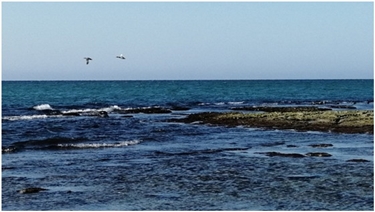Caspian Sea pollution from land-based sources is being addressed through a strengthened legal framework. The second Protocol to the Convention for the Protection of the Marine Environment of the Caspian Sea (Tehran Convention), entered into force, says Gozel Orazdurdieva, a liaison officer with the Secretariat of the Tehran Convention in her article, published in the Neutral Turkmenistan newspaper.
The protocol, which is also called the Moscow document, was signed in December 2012. The document pays special attention to the entry of pollutants into the marine environment through the atmosphere as a result of various activities, including physical changes in the natural state of the coastline, adjacent landscape, and biodiversity habitats.
Strengthening national environmental control bodies, bolstering environmental legislation, developing cutting-edge environmental monitoring and assessment systems, and promoting sustainable coastal development are the core priorities of the protocol.
According to Orazdurdiyeva, the five-party agreement will enhance the environmental work already carried out by the Caspian states and will be reflected in the plans of the environmental departments of the Caspian countries.
So far, in addition to the Moscow Protocol, three more protocols to the Tehran Convention have been adopted:
- The Protocol on Regional Preparedness, Response and Cooperation in the Event of Incidents Causing Oil Pollution (Aktau) entered into force in 2016.
- The Protocol on the Conservation of Biological Diversity (Ashgabat) is in the process of ratification.
- The Protocol on Environmental Impact Assessment (EIA Protocol, Moscow) is also in the process of ratification.
A fifth protocol on monitoring, assessment and exchange of information on the state of the marine environment is currently being developed.
The Tehran Convention, a landmark international legal instrument governing environmental protection and biological resource management in the Caspian Sea, entered into force in 2006. Developed through the Caspian Environmental Program, with contributions from experts across the five littoral states, the Convention has played a crucial role in fostering regional cooperation. Now, the potential for reviving and revitalizing this collaborative framework is under consideration. ///nCa, 14 December 2023
